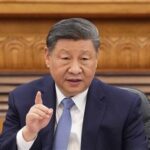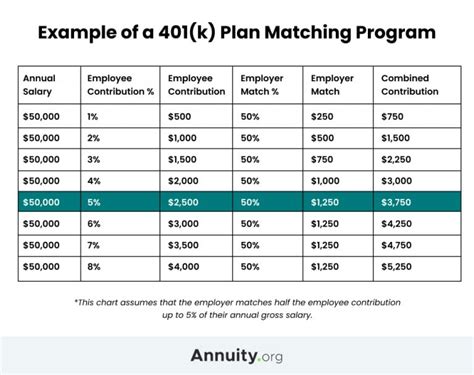
China’s potential retaliatory measures against U.S. tariffs could significantly impact American homeowners, particularly through higher prices for building materials and household goods, according to market analysts. Experts warn that if China imposes new tariffs or restricts exports in response to recent U.S. trade policies, the costs could be passed down to consumers, exacerbating inflationary pressures in the housing market and beyond.
American homeowners could bear the brunt of China’s response to increased U.S. tariffs, with potential price hikes on essential construction materials and everyday household items, market watchers cautioned. Escalating trade tensions could trigger inflationary pressures that ripple through the U.S. economy, directly affecting consumer spending and the housing sector.
The looming threat of retaliatory action by China arises after the Biden administration unveiled new tariffs on Chinese imports, targeting strategic sectors such as electric vehicles, batteries, steel, and critical minerals. These tariffs are intended to protect American industries from what the White House views as unfair trade practices and overcapacity issues. However, Beijing has strongly condemned these measures, signaling its intent to respond in kind.
“We anticipate China will retaliate,” stated Isaac Stone Fish, CEO and founder of Strategy Risks, a firm specializing in geopolitical risk, in a recent analysis. “The question isn’t if, but how.”
One likely avenue for Chinese retaliation is imposing tariffs on U.S. exports to China. While the direct impact of such tariffs might be felt initially by American exporters, the indirect consequences could affect U.S. consumers. Another possibility is restricting the export of critical materials and goods that are essential to U.S. industries and consumers.
The housing market, already grappling with high interest rates, limited inventory, and elevated construction costs, could be particularly vulnerable. China is a major supplier of building materials, including steel, aluminum, and various components used in home construction and renovation. Any disruption to this supply chain or increase in import costs could further drive up the price of building homes and completing home improvement projects.
According to a report by the National Association of Home Builders (NAHB), tariffs on imported lumber from Canada have already contributed to higher construction costs in recent years. Expanding tariffs to include Chinese building materials could compound this problem.
Moreover, China is a significant producer of household goods, ranging from furniture and appliances to electronics and textiles. Retaliatory measures affecting these products would likely translate into higher prices for American consumers, further straining household budgets.
“If tariffs are imposed on Chinese goods, retailers will have to decide whether to absorb the cost or pass it on to consumers,” explained Katherine Cullen, senior director of industry and consumer insights at the National Retail Federation (NRF). “In many cases, retailers will have no choice but to increase prices.”
The potential economic impact extends beyond the housing market and consumer goods. Businesses that rely on Chinese imports for their operations could face higher costs, potentially leading to reduced investment and job creation. The overall effect on the U.S. economy could be significant, depending on the scale and scope of China’s response.
Some analysts suggest that China might target specific sectors or regions of the U.S. economy that are particularly vulnerable to trade disruptions. This could include agricultural products, manufactured goods, or states that heavily rely on exports to China.
“China has a history of using trade as a tool to exert political pressure,” noted Wendy Cutler, vice president at the Asia Society Policy Institute and a former U.S. trade negotiator. “They may choose to target specific sectors or companies to maximize the impact of their retaliation.”
The ongoing trade tensions between the U.S. and China also have broader geopolitical implications. A protracted trade war could undermine global economic stability, disrupt supply chains, and lead to increased uncertainty for businesses and investors.
The U.S. and China are the world’s two largest economies, and their trade relationship is critical to the global economy. Any escalation of trade tensions could have far-reaching consequences for international trade and investment flows.
The situation remains fluid, and the exact nature and timing of China’s response are uncertain. However, experts agree that American homeowners and consumers should prepare for the possibility of higher prices and increased economic volatility.
The escalating trade dispute between the United States and China is adding another layer of complexity to an already challenging economic environment. With inflation still above the Federal Reserve’s target rate and concerns about a potential recession looming, the prospect of further trade disruptions is a cause for concern.
Homeowners contemplating renovations or new construction may want to consider accelerating their plans to avoid potential price increases in the future. Similarly, consumers may want to stock up on essential household goods before prices rise.
Ultimately, the impact of China’s retaliation will depend on the severity of the measures and the ability of U.S. businesses and consumers to adapt. However, the potential for significant economic disruption is real, and it is essential to be prepared.
The U.S. Trade Representative’s office maintains that the tariffs are necessary to address China’s unfair trade practices, which they say have harmed American businesses and workers. They argue that the tariffs will level the playing field and encourage China to adopt more market-oriented policies.
However, critics of the tariffs contend that they are ultimately paid for by American consumers and businesses. They argue that the tariffs raise prices, reduce competitiveness, and harm the overall economy.
The debate over trade policy is likely to continue as the U.S. and China navigate their complex economic relationship. Finding a way to resolve the trade dispute peacefully and constructively is essential for both countries and the global economy.
The Peterson Institute for International Economics, a non-partisan research organization, has published several studies on the economic effects of tariffs. Their research suggests that tariffs can have a significant negative impact on economic growth and employment.
The Congressional Research Service (CRS) has also issued reports on the U.S.-China trade relationship. These reports provide detailed information on the history of trade disputes between the two countries and the potential economic consequences of different trade policies.
Staying informed about the latest developments in the U.S.-China trade relationship is crucial for homeowners, businesses, and investors. Monitoring news reports, following expert analysis, and consulting with financial advisors can help individuals and organizations make informed decisions in this uncertain environment.
The current situation highlights the interconnectedness of the global economy and the importance of international cooperation. Addressing trade imbalances and promoting fair competition requires a multilateral approach that involves all major trading nations.
As the U.S. and China continue to grapple with their trade differences, the potential for escalation remains a significant concern. Finding a path forward that avoids further trade wars and promotes mutual prosperity is essential for the stability of the global economy.
The complexities of global trade relationships are often lost in the headlines, but understanding the underlying dynamics is crucial for making informed decisions. The potential impact of China’s retaliation on U.S. homeowners is a reminder of the interconnectedness of the world economy and the importance of sound trade policies.
The imposition of tariffs and the threat of retaliation can create a climate of uncertainty that discourages investment and slows economic growth. Businesses may be hesitant to make long-term commitments when the future of trade relations is unclear.
Consumers may also become more cautious in their spending, fearing that prices will rise or that their jobs may be at risk. This can lead to a slowdown in economic activity and potentially a recession.
The long-term effects of the U.S.-China trade dispute are difficult to predict, but they could be significant. The outcome will depend on the choices made by policymakers in both countries and the ability of businesses and consumers to adapt to changing economic conditions.
The current trade tensions underscore the need for a comprehensive approach to trade policy that takes into account the interests of all stakeholders. This includes businesses, workers, consumers, and the environment.
Trade policy should also be based on sound economic principles and evidence-based analysis. It is important to avoid protectionist measures that can harm the economy and undermine global trade.
The U.S. and China have a shared responsibility to manage their economic relationship in a way that promotes global prosperity and stability. This requires open communication, mutual respect, and a willingness to compromise.
The potential for China’s retaliation to affect U.S. homeowners is a reminder of the importance of understanding the global economy and the impact of trade policies on everyday life.
The situation serves as a cautionary tale about the potential consequences of trade wars and the need for a more cooperative approach to international trade.
The ongoing trade dispute between the U.S. and China highlights the complex and often conflicting interests that shape global economic relations. Finding a way to balance these interests and promote a more equitable and sustainable global economy is a major challenge for policymakers around the world.
The uncertainty surrounding the U.S.-China trade relationship is likely to continue for the foreseeable future. Homeowners, businesses, and investors should prepare for the possibility of further trade disruptions and increased economic volatility.
Remaining informed, seeking expert advice, and diversifying investments are all important strategies for navigating this challenging economic environment.
FAQ: China’s Potential Retaliation and Impact on US Homeowners
1. What is the main concern regarding China’s potential retaliation?
The primary concern is that China’s retaliatory measures, such as imposing tariffs or restricting exports in response to U.S. tariffs, could lead to higher prices for building materials, household goods, and other essential items for American homeowners. This could exacerbate inflationary pressures and strain household budgets.
2. How might China retaliate against the new U.S. tariffs?
According to Isaac Stone Fish, CEO and founder of Strategy Risks, China has several options. They could impose tariffs on U.S. exports to China or restrict the export of critical materials and goods that are essential to U.S. industries and consumers. Wendy Cutler, vice president at the Asia Society Policy Institute, suggests that China might target specific sectors or regions of the U.S. economy that are particularly vulnerable to trade disruptions.
3. Which sectors of the U.S. economy could be most affected by China’s retaliation?
The housing market is particularly vulnerable due to its reliance on Chinese building materials like steel and aluminum. Any disruption to this supply chain could drive up the cost of home construction and renovation. The retail sector, especially household goods, is also at risk. Higher prices on Chinese-made furniture, appliances, electronics, and textiles would likely be passed on to consumers.
4. What can homeowners do to prepare for potential price increases?
Homeowners contemplating renovations or new construction may want to consider accelerating their plans to avoid potential price increases in the future. Similarly, consumers may want to stock up on essential household goods before prices rise. Staying informed about the latest developments in the U.S.-China trade relationship is also crucial for making informed decisions.
5. What are the broader geopolitical implications of the U.S.-China trade tensions?
A protracted trade war between the U.S. and China could undermine global economic stability, disrupt supply chains, and lead to increased uncertainty for businesses and investors. As the world’s two largest economies, their trade relationship is critical to the global economy. Any escalation of trade tensions could have far-reaching consequences for international trade and investment flows. The U.S. recently imposed new tariffs on approximately $18 billion worth of Chinese goods, including steel, aluminum, semiconductors, electric vehicles, batteries, and critical minerals. This action is aimed at bolstering American industries by mitigating what the U.S. views as unfair competition stemming from China’s state-subsidized production and alleged overcapacity. The move has been met with strong opposition from China, which has vowed to take necessary measures to safeguard its interests.
Experts suggest that China’s retaliatory actions could take several forms. One option is to impose tariffs on a range of U.S. exports, targeting agricultural products, industrial machinery, and consumer goods. Such tariffs could disproportionately affect American farmers and manufacturers who rely on the Chinese market.
Another potential tactic is to restrict the export of critical minerals, rare earth elements, and other essential components that are vital to U.S. manufacturing. China controls a significant share of the global supply of these materials, giving it considerable leverage in trade negotiations. Limiting their availability could disrupt production in various industries, including electronics, aerospace, and renewable energy.
The housing market is particularly exposed to the potential consequences of trade tensions. The cost of building materials, such as steel, aluminum, and lumber, has already been subject to price fluctuations due to previous tariffs and supply chain disruptions. Further tariffs or export restrictions could exacerbate these issues, leading to higher construction costs and reduced affordability for potential homebuyers.
Moreover, many household appliances, furniture, and electronic devices are manufactured in China and imported into the U.S. If these goods become subject to higher tariffs, retailers may have to pass the increased costs on to consumers, resulting in higher prices for everyday items.
The National Retail Federation (NRF) has warned that escalating trade tensions could negatively impact consumer spending and overall economic growth. The organization has urged the U.S. and China to find a resolution to their trade disputes that avoids further disruptions to supply chains and price increases for consumers.
Economists at various financial institutions have also expressed concerns about the potential fallout from a trade war. They point out that tariffs act as a tax on consumers and businesses, reducing purchasing power and discouraging investment. A prolonged trade dispute could also lead to increased uncertainty and volatility in financial markets.
The impact of China’s retaliatory measures will depend on their scope and duration. If the measures are narrowly targeted and relatively short-lived, the effects may be limited. However, if the trade dispute escalates into a full-blown trade war, the consequences could be more severe and widespread.
Homeowners planning to undertake renovations or new construction projects may want to consider accelerating their timelines to avoid potential price increases. Consumers may also want to evaluate their spending habits and prioritize essential purchases.
Businesses that rely on Chinese imports should assess their supply chains and explore alternative sourcing options to mitigate the risks of potential disruptions. Diversifying supply chains can help reduce dependence on any single country and improve resilience in the face of trade-related uncertainties.
The U.S. and China have engaged in numerous rounds of trade negotiations over the past several years, but progress has been limited. The fundamental differences in their economic systems and trade practices make it difficult to reach a comprehensive and lasting agreement.
Some experts believe that a more pragmatic approach is needed, focusing on specific areas of cooperation rather than attempting to resolve all outstanding issues at once. They suggest that the two countries should prioritize areas of mutual interest, such as climate change, global health, and counterterrorism.
Others argue that the U.S. must maintain a firm stance against what it views as unfair trade practices by China. They contend that tariffs and other trade restrictions are necessary to level the playing field and protect American industries.
The outcome of the U.S.-China trade dispute will have significant implications for the global economy. It is essential for both countries to engage in constructive dialogue and seek mutually beneficial solutions that avoid further escalation and promote stability.
The current situation underscores the interconnectedness of the global economy and the importance of international cooperation. Addressing trade imbalances and promoting fair competition requires a multilateral approach that involves all major trading nations.
As the U.S. and China continue to navigate their trade differences, the potential for escalation remains a significant concern. Finding a path forward that avoids further trade wars and promotes mutual prosperity is essential for the stability of the global economy.
The imposition of tariffs and the threat of retaliation can create a climate of uncertainty that discourages investment and slows economic growth. Businesses may be hesitant to make long-term commitments when the future of trade relations is unclear.
Consumers may also become more cautious in their spending, fearing that prices will rise or that their jobs may be at risk. This can lead to a slowdown in economic activity and potentially a recession.
The long-term effects of the U.S.-China trade dispute are difficult to predict, but they could be significant. The outcome will depend on the choices made by policymakers in both countries and the ability of businesses and consumers to adapt to changing economic conditions.
The current trade tensions underscore the need for a comprehensive approach to trade policy that takes into account the interests of all stakeholders. This includes businesses, workers, consumers, and the environment.
Trade policy should also be based on sound economic principles and evidence-based analysis. It is important to avoid protectionist measures that can harm the economy and undermine global trade.
The U.S. and China have a shared responsibility to manage their economic relationship in a way that promotes global prosperity and stability. This requires open communication, mutual respect, and a willingness to compromise.
The potential for China’s retaliation to affect U.S. homeowners is a reminder of the importance of understanding the global economy and the impact of trade policies on everyday life.
The situation serves as a cautionary tale about the potential consequences of trade wars and the need for a more cooperative approach to international trade.
The ongoing trade dispute between the U.S. and China highlights the complex and often conflicting interests that shape global economic relations. Finding a way to balance these interests and promote a more equitable and sustainable global economy is a major challenge for policymakers around the world.
The uncertainty surrounding the U.S.-China trade relationship is likely to continue for the foreseeable future. Homeowners, businesses, and investors should prepare for the possibility of further trade disruptions and increased economic volatility.
Remaining informed, seeking expert advice, and diversifying investments are all important strategies for navigating this challenging economic environment.
FAQ: China’s Potential Retaliation and Impact on US Homeowners
1. What specific building materials could see price increases due to China’s retaliation?
Steel, aluminum, and various components used in home construction and renovation are potentially vulnerable to price increases if China imposes tariffs or restricts exports. Lumber, which has already experienced price volatility due to tariffs on Canadian imports, could also be affected.
2. How might China’s control over rare earth elements affect U.S. industries and homeowners?
China controls a significant portion of the global supply of rare earth elements, which are essential for manufacturing electronics, appliances, and renewable energy components. Restricting exports of these materials could disrupt production in these industries, leading to higher prices for consumers and potentially delaying the adoption of green technologies.
3. What is the National Retail Federation’s (NRF) perspective on the trade dispute?
The NRF has warned that escalating trade tensions could negatively impact consumer spending and overall economic growth. They advocate for a resolution that avoids further disruptions to supply chains and price increases for consumers.
4. How can businesses in the U.S. prepare for potential disruptions to their supply chains?
Businesses that rely on Chinese imports should assess their supply chains and explore alternative sourcing options. Diversifying supply chains can help reduce dependence on any single country and improve resilience in the face of trade-related uncertainties.
5. What are some long-term strategies for mitigating the impact of trade tensions on the U.S. economy?
Long-term strategies include promoting domestic manufacturing, investing in research and development to reduce dependence on foreign suppliers, and engaging in multilateral trade negotiations to promote fair competition and reduce trade barriers. Focusing on specific areas of cooperation with China, such as climate change, could also help improve the overall relationship.









